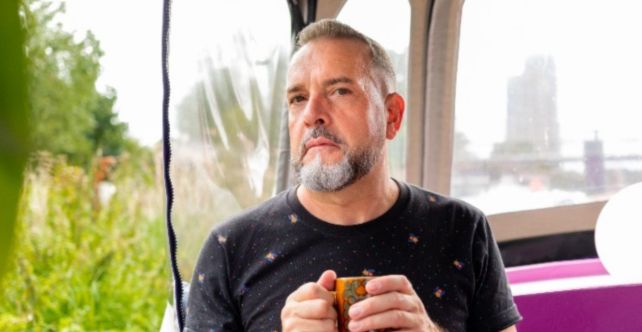Elizabeth Finn Fund Redesign: Weeknotes 01
Welcome to the first in a series of weeknotes detailing the process and learnings from our project to redesign the Elizabeth Finn Fund here at Turn2us.
- Published
- 24/10/2022
- This article is 40 months old

Welcome to the first in a series of weeknotes detailing the process and learnings from our project to redesign the Elizabeth Finn Fund here at Turn2us.
I’m Emma Diamond, a designer and researcher from Noisy Cricket, the design and research agency commissioned by Turn2us to facilitate the process and run research on their behalf.
A bit of context...
The Elizabeth Finn Fund (EFF) is Turn2us's oldest national grant programme. In November 2021, an evaluation of the EFF found that our grant making caused harm to Black and minoritised ethnic people. People from Black and minoritised ethnic backgrounds were less likely to be offered a grant from us compared to their white counterparts. We recognised that the way we made grants, our criteria for grants, and the way we assessed eligibility for grants caused real harm to people already experiencing barriers and prejudice.
As a response to this, we closed the fund to new applications so we could undertake a thorough end-to-end redesign of it. The redesign process, which is now underway, includes working with a diverse group of people with lived experience of financial insecurity to make sure their needs are at the centre of the work. We expect the fund to look very different when it reopens in 2023.
Tell me about the project…
We started the project in May/June 2022 by setting up the project working group with a mix of people with lived and learned experience. We wanted to make sure we cover a range of perspectives, backgrounds and experiences within the project team, so we have a mix of Turn2us stakeholders, from directors to case workers, as well as our co-production partners who bring their stories and lived experiences to the work.
Myself and Lauren Coulman - the founder and strategist at Noisy Cricket - consider our roles to be that of facilitators and conveners for this amazing group of people.
What have you been doing?
We began the process by setting up a series of weekly or fortnightly workshops to cover several topics and challenges:
- Workshop 1 - Planning our Team Canvas to set up our team values, goals and ways of working
- Workshop 2 - Scoping our project to agree our objectives for what we want to create and how we want to do it
- Workshop 3 - Exploring how we can shift power dynamics
- Workshop 4 - Defining our new audiences (part 1)
We ran these workshops over two jam-packed months, after which we decided we needed to pause and re-set our approach. We realised we needed more data to define our new audiences.
Has anything changed?
Reflecting on our approach allowed us to identify the need to do more discovery before we started designing and defining the nuts and bolts of the new grant. This approach will allow us to get a better understanding of potential new audience needs and the context we need to understand to design an effective, equitable and truly inclusive and accessible grant programme.
Therefore we have decided to use the time remaining until November ‘22 to concentrate on defining audiences, understanding their needs and identifying and prioritising key opportunities and concepts for the future design. We will move into the design and delivery stage of the front and back-end functions of the grant in January 2023.
Since this re-planning, we have commenced a new phase of workshops and user research:
- Workshop 5 - Defining our new audiences (part 2)
- User research with our new audiences
- Workshop 6 - Reviewing our Insights
- Workshop 7 - Ideating opportunities for the new grant design
- Workshop 8 - Prioritising opportunities and planning for the new grant design
What have you learned so far?
In terms of process, we’ve learned that being flexible and making project decisions based on reviewing real-world data and collective opinion means we are more likely to make impactful, positive decisions for our future grant.
In terms of project learning, our research showed that single parent families from minoritised ethnic groups, specifically those with Black African, Black Caribbean, Bangladeshi and Pakistani backgrounds are particularly affected by financial insecurity due to structural inequalities. Using this data and reviewing our objectives for what and how we want to do this work, we agreed to focus on this group for our user research.
What are you doing next?
User research with our potential new audiences! We are now looking to do some paid research with these groups to understand their needs and the barriers that make it hard for them to access financial support. We will then use this insight to inform our grant design to ensure it will be as accessible and supportive as possible for our future target audience.
I’ll be sharing another weeknote soon to share our process for user research and specifically how we took a trauma-informed approach to research to account for the difficult nature of the topics we need to explore.
If you have questions, or would like to hear more, please email contact.grants@turn2us.org.uk.